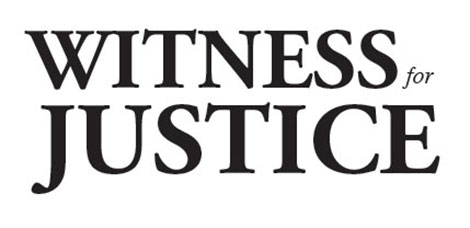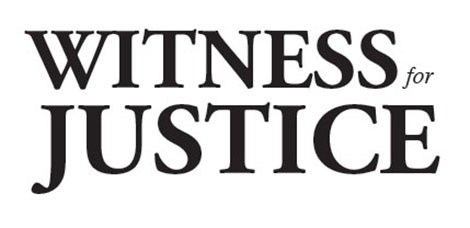Commentary: Collective Responsibility

Thousands of migrant families have been separated and children put into cages and funneled into detention centers, tents in the sweltering desert or foster care thousands of miles away from parents. We now know the death toll in Puerto Rico is estimated at nearly 5,000 people. Flint still does not have clean water. Teachers are still not paid living wages in many states. We are all responsible and our faith calls us to respond and act. However, if we do not do it collectively and intersectionally, we will not impact the systems perpetuating the violence and injustice.
The lectionary this Sunday is Mark, chapter 5, in which a young girl is dying and her father begs Jesus to come and help. He arrives after the girl has died. He restores life to her then commands those gathered, “Give her something to eat.” It echoes the same call to the disciples when more than 5,000 people are gathered listening to Jesus and are hungry and tired. The disciples want them to take care of themselves but Jesus says, “You give them something to eat.” We are responsible for one another.
Nationalism and individualism have rejected outright the idea of collective responsibility. “We take care of our own.” This rhetoric as it converges with militarism, racism, environmental degradation and exploitative economics drives global migration as well as human trafficking, climate change, devastating mining and extraction, and the rising tide of poverty and health crises within our own borders. Nothing about these things sustains collective life.
We can always opt out of charity and good deeds, but responsibility entangles us in relationship and there are consequences when we don’t act. If we hear this within the individualist framework, our first response might be paralysis and despair. Everything is too far gone; there is too much injustice and suffering and I can’t do anything about it all. But if we realize that we too need liberation from selfishness and fear and are invited into a beloved community full of the power of life and all that sustains life in Christ, we might see that an acceptance of collective responsibility activates our collective response-ability.
The Poor People’s Campaign just finished an astonishing 40 days of collective action where tens of thousands of people across the country united and raised their voices for everything from an end to environmental degradation to immigration reform to a living wage. People are risking arrest, documenting, organizing calls to legislators, mobilizing faith communities to speak and preach about the issues, and celebrating this collective effort and resilience through art, music and cultural work. Organizers are meeting separated children at airports to track their locations and document their stories and treatment. More are surrounding detention centers in vigils and being unrelenting with their pressure on lawmakers. Individual response-ability is easily thwarted in the machinations of the state, but our collective response-ability might bring about a collective liberation from it all. Because injustice is everywhere, we can, in our own neighborhoods and circles of community, with our money and creativity, our faith and resources, create collective responses to all that comes against life and what sustains life.
Rev. Tracy Howe Wispelwey is Minister for Congregational and Community Engagement for the United Church of Christ.
View this and other columns on the UCC’s Witness for Justice page.
Donate to support Witness for Justice.
Click here to download the bulletin insert.
Related News
Reflections on a Christian Understanding of State and Government
The testimony of both the Hebrew and Christian scriptures as well as theological reflections...
Read More“What is Wrong with You People?”
I am writing this article from New York City as I engage with CSW, the United Nations...
Read MorePowers and Principalities
As a movement organizer and activist, I appreciate the clarity that emerges when communities...
Read More

